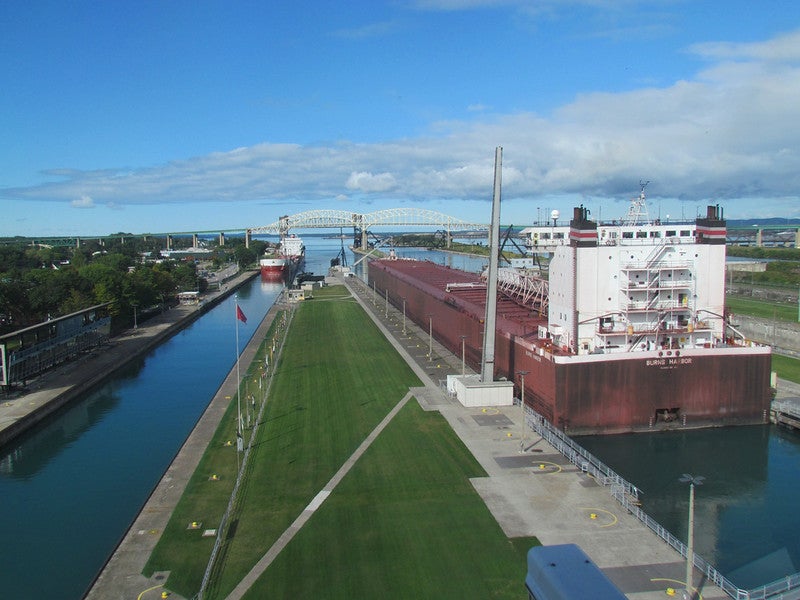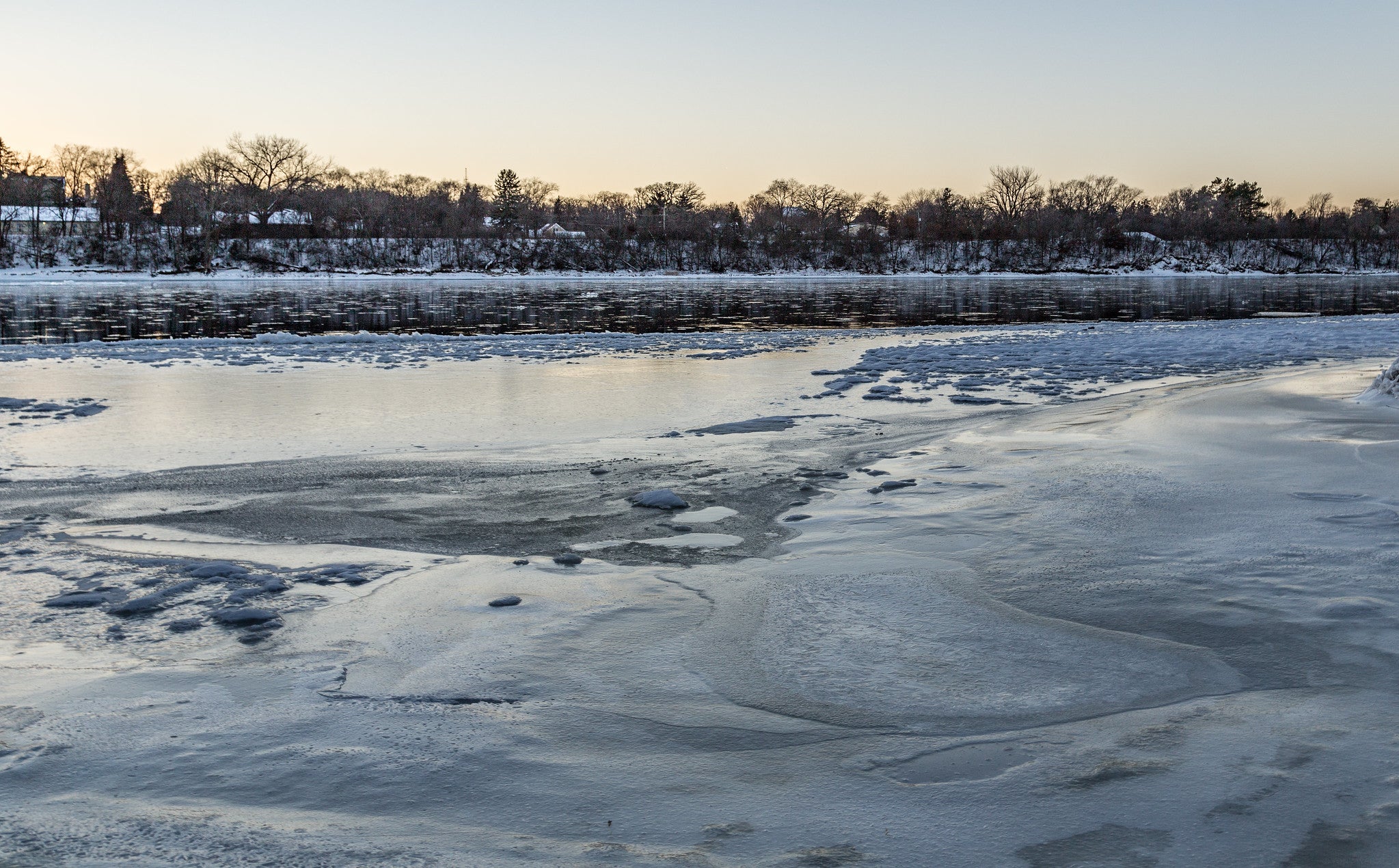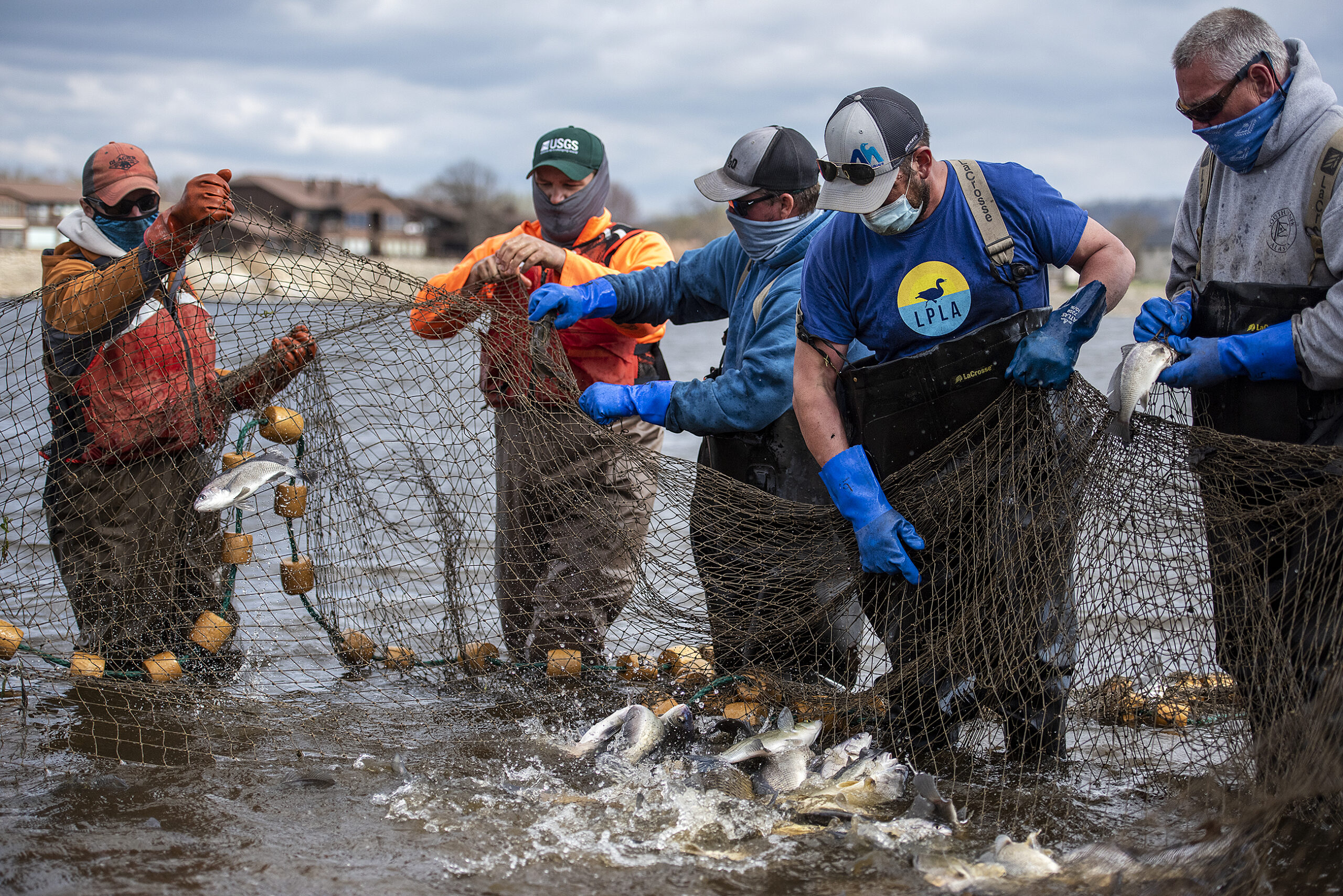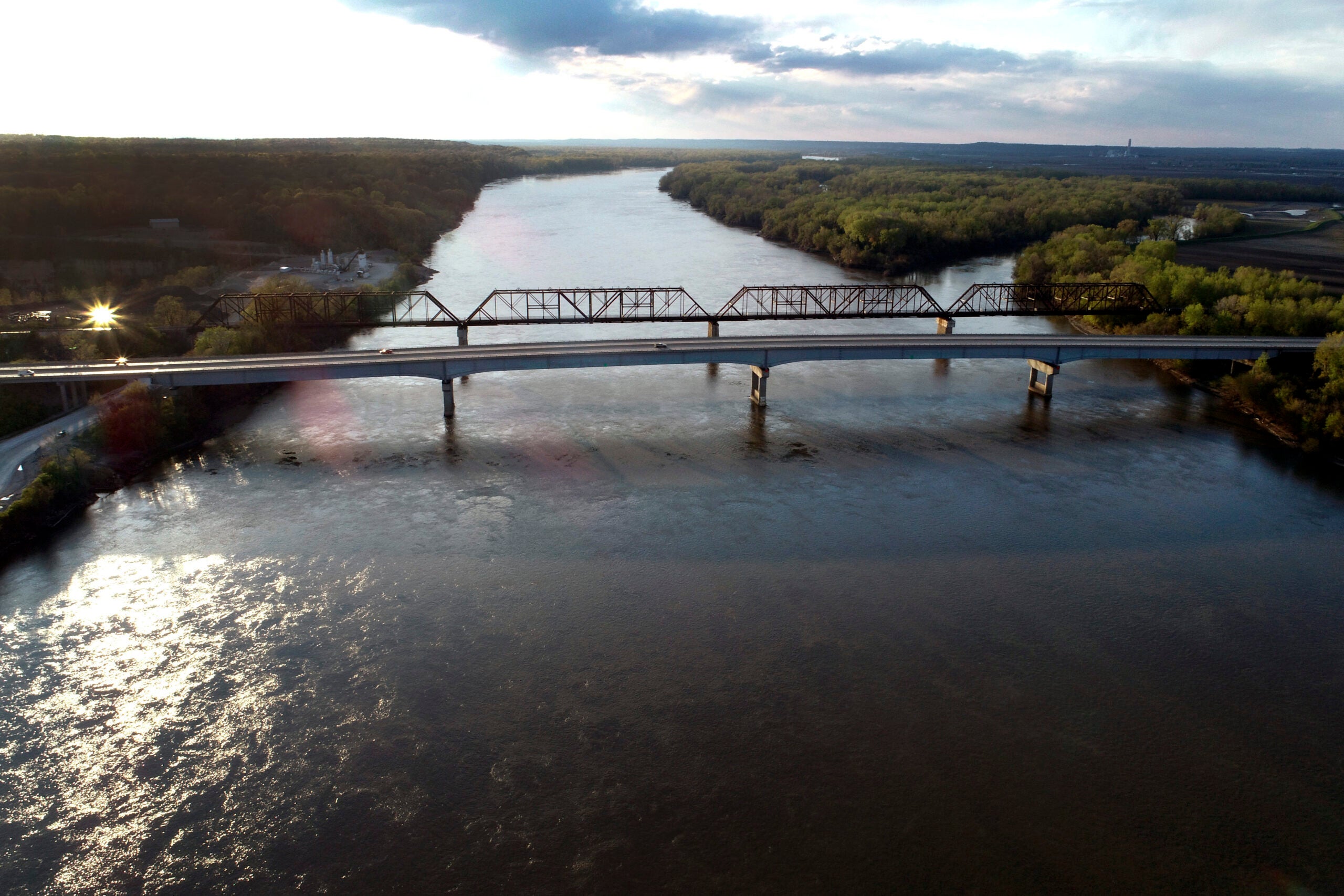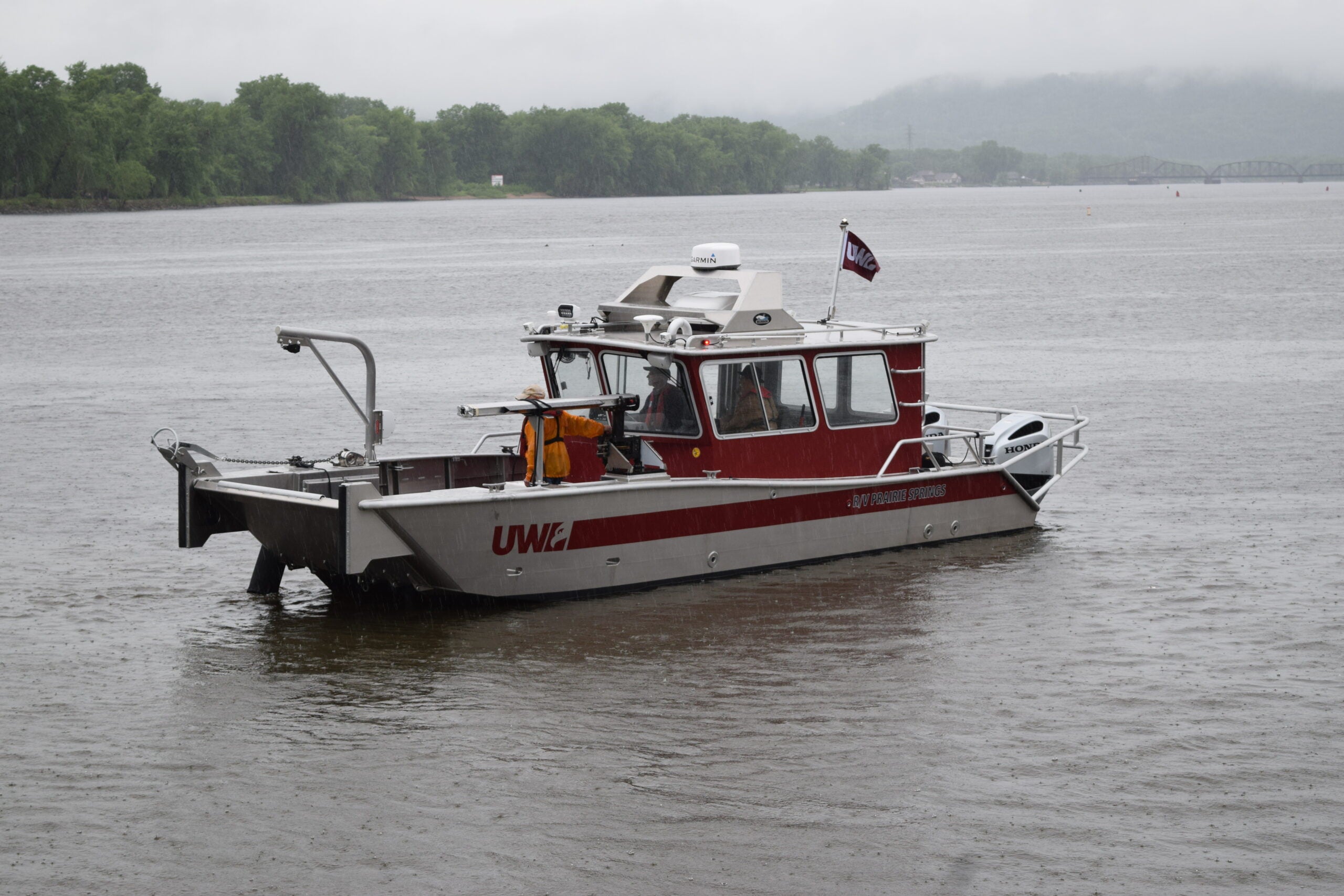The plummeting cold temperatures are forcing the river shipping industry to move quickly and transport products down the Mississippi River before it freezes over.
The navigation season typically ends in the first week of December, after the U.S. Army Corps of Engineers shuts down the locks. This year, however, there are already concerns that industries have to wrap the season up earlier than usual.
Adam Binsfeld, the operations manager at Brennan Marine in La Crosse, said that in recent years the company has not had to finish work so soon. Binsfeld said a crew working on Mississippi River locks in Iowa this winter is moving quickly to beat the ice.
Stay informed on the latest news
Sign up for WPR’s email newsletter.
“Now we’re sitting at 32 degrees, ice in the pool,” he said. “We’re looking to head south with our construction equipment (Tuesday). We had originally planned to head south a week from (Monday).”
Binsfeld said this comes on top of a challenging navigation season, after high water and dredging led to the river being closed for a several weeks.
The change in shipping timetables means that farmers are running out of time to ship products by barge. Jim Hager, the general manager of Harmony Country Cooperative in Colby, said that any grain that does not make it on a barge either has to be stored away for the winter or shipped by truck or rail.
“The cost can be higher because of the high price of diesel right now,” said Hager. “Then you can’t get rail because of the frac sand and stuff like that. It really causes the cost of freight to go up. With corn prices being down, it’ll be less money for the farmer, which affects all of us.”
Hager said that fertilizer shipments by barge were also delayed, which could bring problems in the spring.
Wisconsin Public Radio, © Copyright 2025, Board of Regents of the University of Wisconsin System and Wisconsin Educational Communications Board.

